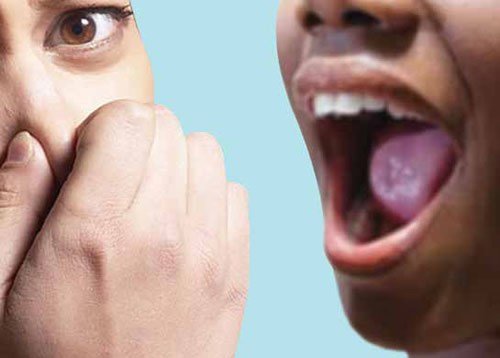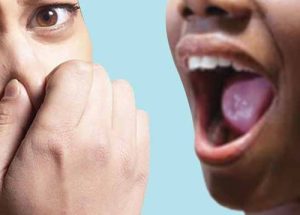5 Tips To Cope With Bad Breath

Bad breath also called halitosis is very common. It is a condition where the main symptom is bad smelling breath.
Everyone gets bad breath from time to time especially after eating garlic, onions or other strong foods.But for some people, bad breath is a daily problem, and they struggle to find a solution.

Bad breath that doesn’t go away (chronic halitosis) could mean you have an oral health issue or a condition that’s affecting another part of your body.
READ ALSO: 8 Ways To Take Care Of Your Hair During Pregnancy
Some people may not be aware of their own halitosis and learn about it from a relative, friend, or coworker, causing some degree of discomfort and distress. In severe cases, bad breath may negatively impact personal relationships and a person’s quality of life.

What Causes Bad Breath? And What Can You Do About It?
Bad breath can originate both inside and outside of the mouth. Bad breath is typically caused by bacteria present on the teeth and debris on the tongue. So it’s no surprise that most cases of halitosis are associated with poor oral hygiene, gum diseases such as gingivitis and periodontitis, and dry mouth, a condition in which the salivary glands cannot make enough saliva to keep your mouth moist. A visit with a dentist may help rule out periodontal disease and identify any mouth problem that could be contributing to bad breath.
Here are some helpful tips to improve bad breath:
1. Brush your teeth at least twice a day, after meals, with a fluoridated toothpaste.

2. Avoid tobacco smoking and chewing tobacco-based products.

3. Rinse and gargle with an alcohol-free mouthwash before bed.

4. If you have dry mouth, make sure to drink enough fluids throughout the day and use over-the-counter moisturizing agents, such as a dry mouth spray, rinses, or dry mouth moisturizing gel. If you don’t see any improvement, you may want to schedule a visit with an oral medicine specialist. Oral medicine doctors provide comprehensive care for mucosal diseases, salivary gland disorders, orofacial pain conditions, and oral complications of cancer therapies, among other things.
5. Visit your dentist regularly. Remember, oral causes are responsible for most cases of bad breath!









